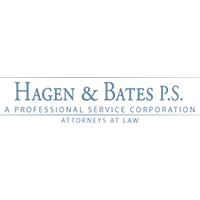 Menlo Criminal Lawyers, Washington
Menlo Criminal Lawyers, Washington
Sponsored Law Firm
-
 x
x

Click For More Info:
-
Russell & Hill, PLLC
1212 North Washington St. Suite 132 Spokane, WA 99201» view mapCriminal Defense Law Professional, Personal, Proven
You have questions, and we have answers. Here at Russell & Hill, PLLC, we know how to obtain the most favorable outcome for your particular circumstances.
800-928-5340
Sponsored Lawyers
1-10 of 24 matches
Divorce & Family Law, DUI-DWI, Estate, Landlord-Tenant, Native People
Ron A. Soriano, Jr. is a seasoned attorney who has been practicing in Western Washington for almost a decade. He brings passion to the office and courtroom, representing clients seeking a lawyer they can trust to take their most important issues and represent them with integrity and reliability. Ron Soriano Jr. began his legal experience in California. After attending the University of California, Los Angeles (Bachelor of Arts, Political Science, June 2002), he went on to graduate Whittier Law School (Juris Doctorate 2005). He moved to the Pacific Northwest in 2010 where he has remained, being admitted to the Washington Bar (2010). He is a member of the Hispanic American Law Student Association, Vietnamese American Student Bar Association, Asian Bar Association of Washington, Filipino Lawyers of Washington and the Grays Harbor Bar Association, where he served as Treasurer (2013-2014). Ron incorporates his broad experiences to effectively relate with his clients he represents in criminal charges, all family law and domestic matters and immigration. Ron’s desire is to bring the best results to fathers, mothers, husband, wives, children, defendants, immigrants and businesses in our communities. Ron’s ease of relating brings a calm assurance to his clients as he represents their interests in Western Washington counties and area tribal courts. Ron is fluent in the Tagalog language and knowledgeable in basic American Sign Language.
(more)Criminal, Personal Injury, DUI-DWI, Business
Since the firm was established in 1993, the skilled attorneys at Hagen & Bates P.S. have provided versatile, professional and effective solutions to a variety of our clients’ legal challenges. With over 40 years of combined experience, we are always here to provide the support and assistance you require. For his professionalism and ethics, principal attorney Wayne D. Hagen, Jr. has earned a BV® Distinguished Peer Review Rating by Martindale-Hubbell®. The unique talents, backgrounds and skills our attorneys bring to our law firm apply well to various areas of the law. With our proven courtroom skills in state and federal jurisdictions, we are experienced litigators who are prepared to do the research and understand the nuances of your case. We also have the skill to handle complex transactions.
(more)Criminal, DUI-DWI, Misdemeanor, Felony, Traffic
Preston White is an attorney representing clients in criminal and family law cases in Olympia, Washington, and the surrounding counties. While serving as an Arabic translator in the United States Marine Corps, and the Utah Air National Guard, Preston earned degrees in Psychology and English at the University of Utah and then earned his Juris Doctor from Seattle University School of Law. With an original goal of becoming a prosecutor, Preston focused his studies on criminal law. It was as a law clerk in a small military criminal defense firm in Seattle that he began to see the injustices in the system, and the unlawful, unfair, and often arbitrary way laws are enforced. His experiences at that firm steered him away from working for the system, and toward fighting against it. It was there that he developed the motto, “defending the accused, and policing the police.” Following graduation, and the passing bar exam, Preston returned to Utah, where he opened a solo practice focused on criminal defense and family law in 2014. As his successes developed his confidence as an attorney, his losses sharpened and tempered both his skills and his resolve. As a result, he developed into a confident, and effective advocate, with the skills to pursue, and obtain excellent results both inside, and outside the courtroom. His knowledge, efforts, and abilities have resulted in a number of not-guilty verdicts in “unwinnable” cases, as well as dramatically reduces charges, and sentences in cases that resolved outside of trial. He has successfully defended hundreds of clients, saving them incalculable amounts of time, and money, as well as providing guidance to them on how to successfully navigate the system throughout the life of their cases. As a criminal defense attorney, Preston has successfully represented clients in cases ranging from traffic infractions, DUI’s, and simple assaults, to sex crimes, and aggravated assaults. As a family law attorney, he has successfully represented clients in dissolution, spousal support, and custody cases. Preston grew up in Northern Utah and currently resides in Thurston County with his wife, three children, dog, cat, and (so he says, because his wife does not like mice, and one of his daughters does not like spiders) countless mice, spiders, and spider-mice. His interests include good coffee, unique cars, and laughing at his own jokes. According to his wife, if he was half as funny as he thought he was, he wouldn’t have to practice law for a living. Fortunately, he is a better lawyer than a comedian.
(more)Criminal, Divorce & Family Law, Bankruptcy & Debt, Traffic, Accident & Injury
From our offices in Seattle and throughout the state of Washington, we help families solve difficult legal problems and move on with their lives. We are a dedicated team of attorneys who are here to help your in your time of need and crisis. Our Seattle, WA lawyers have the experience, resources, and understanding to help you with your legal issue. We always offer a free initial consultation because we believe that it’s important for you to understand your rights and options. Our goal is to give you the information you need to make the best decisions for you and your family. Because we know that many people are concerned about the cost of legal fees, we offer affordable low flat fees and inexpensive payment plans. If you’re facing a difficult legal problem and need guidance from an experienced, knowledgeable attorney, call us today. We want to help you.
(more)Accident & Injury, Medical Malpractice, Criminal, Divorce & Family Law, Estate
Mr. Brumbaugh is the senior shareholder of Walstead Mertsching. He joined the firm in 1992 and has been a shareholder since 1996. He primarily represents victims of motor vehicle collisions and medical malpractice. He is licensed in Washington and Oregon and practices in both State and Federal trial and appellate courts. He has successfully argued before the Washington State Supreme Court. His areas of focus include: wrongful death claims; automobile, motorcycle and trucking collisions; medical and nursing home malpractice; and defective product claims.
(more)


 James Hill Spokane, WA
James Hill Spokane, WA Practice AreasExpertise
Practice AreasExpertise





